Accelerators give startups an opportunity to tackle real-world business problems at scale: Tammy Redpath, Target India Accelerator
This accelerator has already graduated 30 startups in five cohorts since 2014. Here’s what future cohorts can expect in terms of opportunities and growth.

[This article is part of the YourStory series Startup Hatch, about incubators, accelerators, makerspaces and co-working spaces in the startup ecosystem. See earlier profiles of initiatives at IIT Bombay, IIM Bangalore, BITS Pilani, NCL, Tata Elxsi,Axilor, NID, IIIT-Bangalore, IIIT-Hyderabad, Vellore Institute of Technology, PSG Coimbatore, Workbench Projects, Makers Asylum, Appy Hours, Turning Ideas, NetApp Excellerator, Pitney Bowes Accelerator, TechStars, Indigram Labs, WeWork, Z Nation Lab, Sandbox Startups, Brigade REAP, Ashoka Innovators, and Startup Leadership Programme.]
Tammy Redpath is the President of Bengaluru-based Target India, an extension of the US retailer Target’s headquarters operations. Target is a leading discount retailer with nearly $70 billion in sales, and serves customers at more than 1,800 stores and on Target.com in the US.
Tammy was earlier a senior vice president of marketing, leading a global creative and operations team with disciplines in strategy, digital, project management, production and experiential marketing. She graduated from University of Saint Thomas, Minnesota with a BA in Marketing.
Tammy joins us in this interview on Target’s accelerator programme in India, opportunities and challenges for startups, and profiles of the graduated startups.
YourStory: What was the founding vision of your accelerator, and how is it supported?
Tammy Redpath: The goal of Target’s accelerator programmes is to support Target’s strategic initiatives in an effort to create a better guest experience. Working directly with startups gives us access to fresh thinking as we focus on enhancing the shopping experience and offering a differentiated assortment to meet our guests’ needs. Our accelerator programmes focus on programming and guidance that helps the startups learn how to scale to mass retail.
We launched the Bengaluru-based Target Accelerator Program in January 2014. Our accelerator portfolio also includes the US-based Target Take-off as well as Target + Techstars accelerator programmes. Through the four-month intensive programme here in Bengaluru, we focus on transformative and technology-driven ideas to create solutions for today’s rapidly changing retail environment. At the end of four months, each startup will have an opportunity to present their business case to Target leaders, investors and others.
YS: What are the key challenges faced by startups in India, and how can you help bridge the gap?
TR: For startups looking to enter the global market, there is often a lack of opportunity to test their solutions and measure their ability to scale. Being able to do so is crucial to helping develop products in a way that can add value to a global business.
This is one of the key benefits for startups participating in the Target Accelerator Program. They have the opportunity to develop and test their products in partnership with Target. The startups are able to get insights from the business that will help them build a scalable solution.
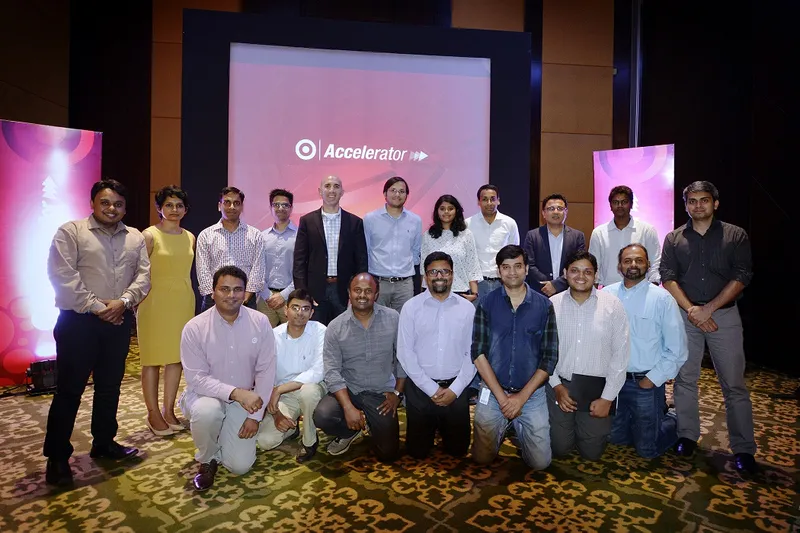
YS: What are the selection criteria for startups in your accelerator?
TR: Target is looking for startups that have the ability to solve a real business problem or challenge that is pertinent to the retail industry, and can help us meet the needs of our guests now and in the future.
YS: What support and services do startups receive in your accelerator?
TR: Once selected into the accelerator programme, we provide startups access to mentors, necessary tools, resources and operational support. We also offer the startups a workspace at Target’s Bengaluru office.
At the end of the four-month programme, we host a ‘Demo Day’, where startups present their ideas to leaders from Target, the industry, angel investors and venture capitalists. Our engagement with startups is long term and ongoing as we continue to work with some of them even after the accelerator programme concludes.
YS: How much equity or royalty do you take from your startups in return for acceleration?
TR: We do not take equity or royalty from the startups for being a part of the accelerator programme.
YS: How would you differentiate your accelerator from the other accelerators in the field?
TR: What differentiates Target’s Accelerator Program is the value proposition we offer. Working with Target gives startups an opportunity to tackle real-world business problems at scale with a global company.
At the end of the four-month programme, startups have the opportunity to implement their solutions in real-time scenarios for Target. The startups get to learn and see the impact of their solutions first hand, working closely with Target teams.
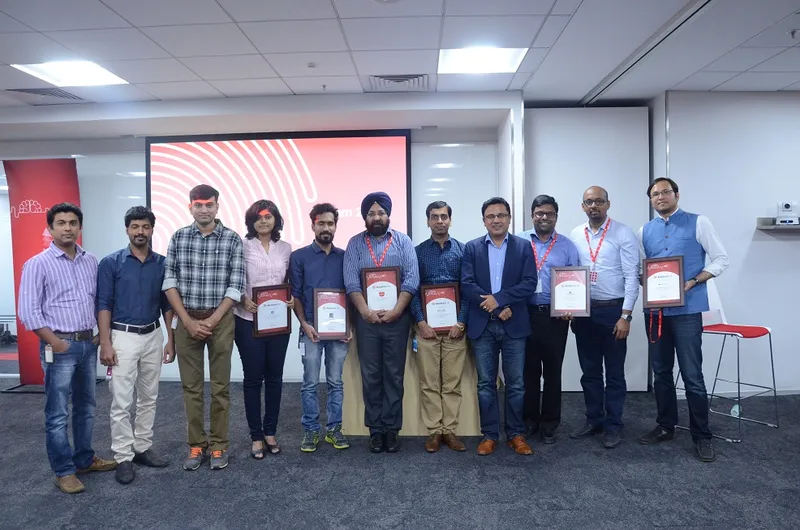
YS: What would you define as success for your accelerator?
TR: A success story is an engagement that adds business value to the startup and helps Target to further differentiate our assortment and elevate the guest experience. There are a lot of talented startups in the industry today with potential use cases in retail.
Our aim is to identify the right type of startup which will help us shape the future of retail through unique and cutting-edge solutions. For the upcoming batch, we will be focusing on identifying retail solutions in the areas of AR/VR, analytics and machine learning.
YS: What are your plans for the coming 3-5 years with respect to new startups?
TR: Innovation is core to Target’s culture and we will continue to look for new ways to enhance the shopping experience and satisfy the needs of our guests. We will continue to invest in building relationships within the Indian startup ecosystem, and we are excited to see what kind of innovations and fresh thinking the startups will continue to bring to the table.
YS: Which startups are currently being accelerated?
TR: Batch 5 of our startup accelerator programme concluded in December 2017, and eight startups graduated from the batch: Cogknit, Jumper.ai, Streamoid, Light Information Systems, Hyperworks, Cognitifai, Moonraft and vPhrase. We continue to work with three startups from the batch.
Currently, applications for Batch 6 of the programme are open and we are reaching out to startups across India. Startups that are interested in the programme can apply here. We also have organised roadshows across five of the key Indian startup hubs: Bengaluru, Mumbai, Hyderabad, Delhi and Chennai.
These roadshows are helping us to create awareness about some of the interesting use cases for startups in retail, particularly in the areas of AR/VR, analytics and machine learning.
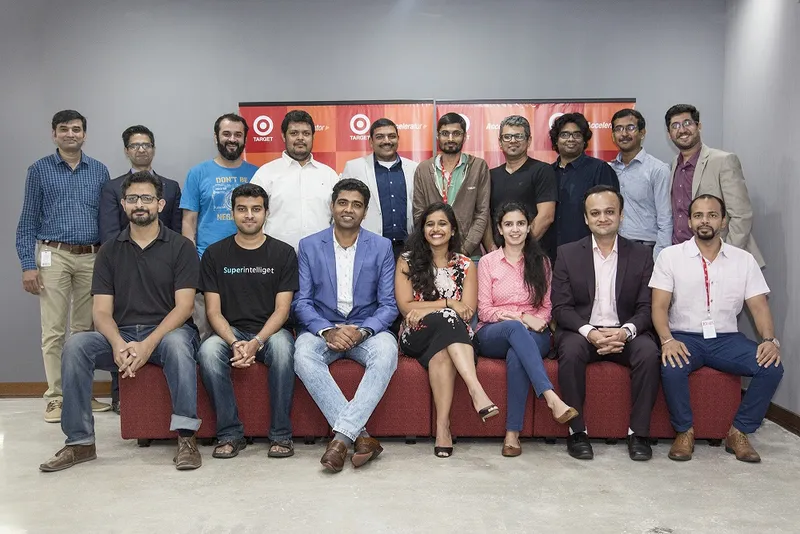
YS: Which startups have graduated from your accelerator so far?
TR: We’ve had 30 startups graduate from five cohorts of the Target Accelerator Program since it was launched in 2014.
Cohort 1:
Konotor (founded by Deepak Balasubramanyam, Srikrishnan Ganesan and Vignesh Girishankar) is a mobile user engagement product that enables an in-app two-way communication to ensure seamless integration with existing apps in both iOS and Android.
Turnaround Innovision (founded by Sreepriya Koppula) provides end-to-end solutions to automate generation of rotating 3D images through their patent-pending turntable and image processing software.
Muhive (founded by Ritesh M Nayak and SagarVibhute) helps brands solve the problem of real-time customer engagement on contemporary channels (social media, email, websites) with a simple-to-use, controlled automation framework. To empower brands to address the functional, accessible and emotional needs of customers, muHive offers products to leverage a brand experience at its strategic best.
Unbxd (founded by Pavan Sondur and Prashant Kumar) focuses on product recommendation and has a proprietary platform called SmartEngage. It provides search, navigation, merchandising and analytics solutions for e-commerce ventures, making it easier for them to showcase targeted and relevant products and recommendations for consumers.
Instaclique (founded by Avinash Shenoi) leverages social connections to provide a more enriching experience to their customers, with increased revenue and profitability to the business. It helps shoppers engage with their friends and families who could be online while they are shopping and make social recommendations.
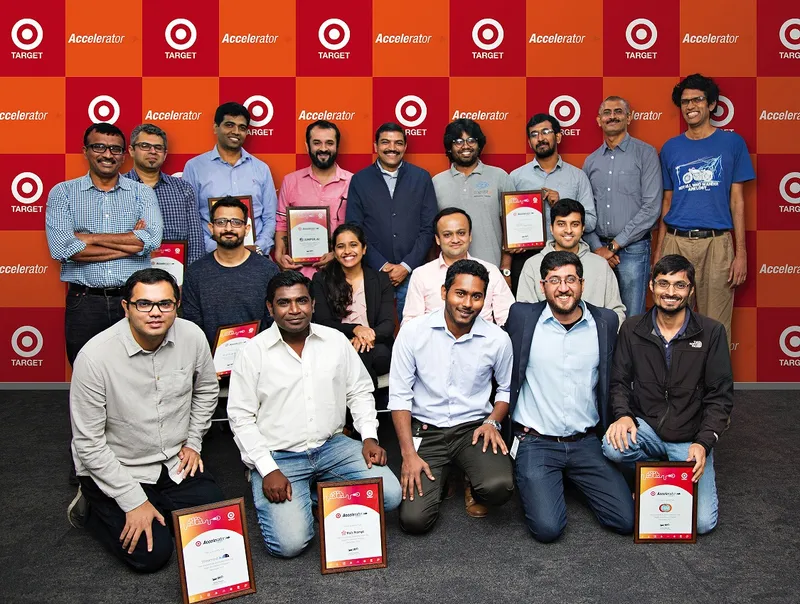
Cohort 2:
Wazzat Labs (founded by Jay Guru Panda and Naveen Sinha) has built an image recognition application to enable visual search for online and mobile applications. It specialises in pattern, colour and style match for apparels and accessories. It caters to fashion-hungry shoppers and helps find the right product in their favourite stores, resulting in faster checkouts.
Whodat Spaces (founded by Sriram Ganesh) focuses on product visualisation. It has built a mobile application that lets customers visualise or experience furniture and home décor products using a handheld device. Consumers can visualise a product in true scale, in their own environment, and in real time - giving people the power to make better choices.
Twiddly enables mobile marketing on a locked screen. The content can be segmented based on user feedback and social signals.
Torch (founded by Anup Balagopal) monitors store traffic allowing better understanding of guests while they are shopping.
Visarity (founded by Harsha Padmanabha and Bastian Zuehlke) has the Elbe 3D platform that creates rich 3D images and delightful creative experiences on mobiles and tablets.
Cohort 3:
Findmeashoe.com (founded by Anand Ganesan, Shabari Raje and P Senthil Nathan) is a footwear recommendation portal that aims to improve shopping efficiency and experience of footwear shoppers. The startup has built a mobile application to help find the right footwear through virtual shopping.
BugClipper (founded by Puneet Sharma and Narendra Kumar) reports bugs directly from the application and shares feedback through screenshots and screen recordings.
TimeFlex (founded by Raj Kumar) provides cloud-based micro-environment monitoring for parameters such as temperature, humidity and air pressure.
House of Blue Beans (founded by Keshav Vijayaraghavan and Kaushik Vijayaraghavan) provides best-in class 3D product visualisations for companies by using VR technologies.
Discover Dollar (founded by Subrahmanya Rao NS) helps stop leakages and over-payments. Its algorithm can scan through available data sources including unstructured data like emails or contracts. It notifies relevant people in the organisation about potential overpayment and helps resolve it.
Cohort 4:
Preksh (founded by MA Kondandarama, Saikat Sinha, Sathvik Muralidhar and Sharath TC) leverages visual merchandising in the store to create rich online experiences.
MintM (founded by Sachin Garg) is an in-store customer engagement platform. Uncanny Vision (founded by Ranjith Parakkal and Navanee Sundaramoorthy) is a computer vision processing library. Lechal (founded by Krispian Lawrence) is an interactive, haptic footwear. Lawbot.ai (founded by Manasvini Krishna) is an automated platform that analyses legal contracts.
Charmboard (founded by GBS Bindra) provides a technology that turns a video into an interactive experience, allowing the viewer to touch or click on any item to receive additional information. This includes information about the object or product, direct links to company websites, and the ability to buy that item directly.
Story Xpress (founded by Ankit Mishra and Chinmay Jindal) is a cloud-based video creation platform that converts raw data – such as images, text or small video clips – into high quality promotional videos using proprietary video rendering technology.
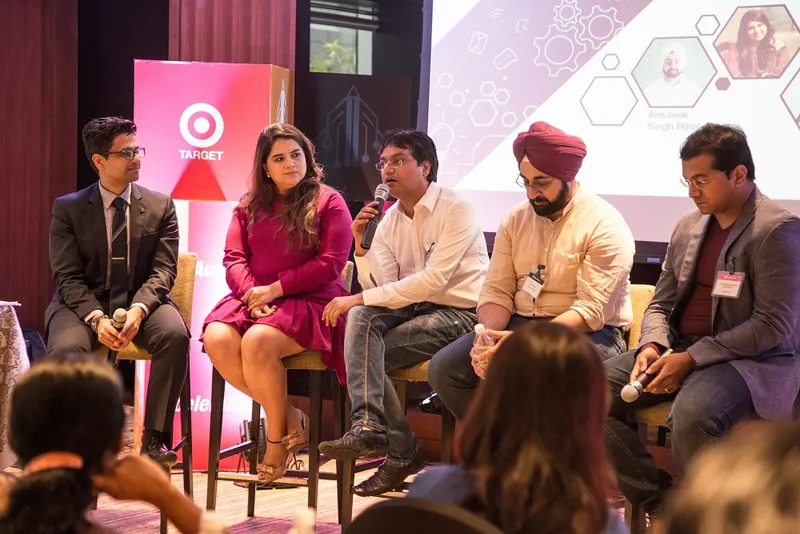
Cohort 5:
Cogknit is a product innovation lab that builds business solutions using speech, computer vision and text machine learning. It has a digital learning product that automates competency development using machine learning. It also offers voice-first solutions in Indic languages to automate workflows like payments in the BFSI space.
Jumper.ai (founded by Yash Kotak and Nyha Shree) makes images and posts on social media shoppable through hashtags. A unique hashtag is generated for a product post. Users who comment on that post with the hashtag are automatically guided to checkout by a conversational bot. This capability is available across Facebook, Instagram, YouTube and Twitter.
Streamoid (founded by Rajesh Kumar SA and Sridhar Manthani) has built an intelligent platform for fashion, with multiple features designed to enhance a guest’s shopping experience online. This includes ‘Complete the look’ recommendations that suggests complementary products to go with the current selection, and a visual search of similar products.
Light Information Systems (founded by Sanjeev Nair and Sanjeev Menon) has a product, NLPBOTS, which integrates with online products or services, web, intranet or mobile. It gives users an always available help feature via a chatbot interface. The product semantically processes text and images, and is powered by deep learning algorithms that help it learn from user interactions. The system works with both structured and unstructured data and is capable of natural language understanding and generation.
Hyperworks (founded by Naveen Margankunte and Ajay Tannirkulum) has domain expertise in agritech, machine learning and infrared spectroscopy. The multi-disciplinary team uses AI, imaging and product design to solve business pain points from farm-gate to retail stores.
Cognitifai (founded by Kanishka Nithin) is a video intelligence platform that uses computer vision to index and reason physical world phenomena. The platform specialises in urban monitoring such as surveillance, healthcare and hyper-local intelligence discovery for smart cities and retail enterprises.
Moonraft Innovation Labs (founded by Sreekumar Paramu and Soma) is a design and innovation firm working towards advancing human experiences across digital and physical media. They have created an AI-powered shopping assistant for trial rooms.
vPhrase (founded by Neerav Parekh) helps enterprises understand their data better by explaining insights in words using AI. The company’s patent pending platform, Phrazor, analyses data, derives insights and communicates those insights in words, in multiple languages. Phrazor embodies the expertise of the analysts in finance and automates it.







